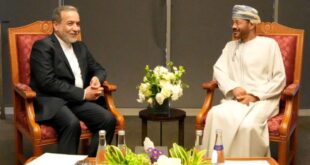CAIRO (AP) — The Arab League will open offices in Iraq for the first time since the 2003 US-led invasion, part of its efforts to help reconcile the country’s sharply divided Sunni Arab, Shiite and Kurdish communities, the league’s chief said Saturday. The representation office would represent an increased level of engagement by the Arab League, which largely avoided involvement in Iraq’s efforts until late last year. The move comes amid fears that increasing sectarian violence in Iraq could further split the country.
The United States has been seeking greater Arab involvement in Iraq, hoping to give legitimacy to the current government. But Arab nations were long reluctant, fearing participation would be seen as condoning the US invasion, which many of them opposed. Iraq’s new Shiite leadership was also suspicious of the Arab League, seeing it as biased towards Iraq’s Sunni Arab minority.
But last year, the league made efforts to clear the air and get involved. Arab League Secretary-General Amr Musa visited Iraq, then the league hosted a reconciliation conference in Cairo in November between Iraq’s Shiite, Sunni and Kurdish leaders.
Musa said Saturday that the league will “open a representative office in Baghdad. This will be done in the near future, urgently.”
“The situation in Iraq is tragic, Iraq is facing dangerous challenges,” he said at a gathering of Arab League foreign ministers in Cairo.
The league is planning to sponsor a second reconciliation conference, this one in Baghdad, in June. The league representation office is expected to be opened by the time of the conference and will be headed by Moroccan diplomat Mukhtar Lamani, Arab diplomats said.
Iraqi leaders are struggling to put together a government after December parliamentary violence amid a surge of violence that has killed at least 500 people since last week.
The diplomats also said Arab governments are discussing requests from the United States and Britain to send troops helping in peace keeping in Iraq. However, opposition to sending troops remains high among Arab governments.
An Arab League envoy, former Sudanese foreign minister Mustafa Osman Ismail, discussed with US and British envoys in Iraq during a visit to Baghdad last month the idea of several Arab and Islamic countries sending some 1,200 soldiers each, the diplomats said, speaking on condition of anonymity because of the sensitive of the issue.
No decision is expected by any Arab country before the June conference.
Support to the idea of sending Arab nations troops to patrol Iraq is so sparse in the region and Arab officials including Musa did not endorse troops. They fear that the troops will enmeshed in the Iraqi violence and any attack by Iraqi rebels would cause a regional backlash.
Meanwhile, Musa underlined that the Arab League “will stand openly against any retreat in the peace process” with Israel — an apparent attempt to pressure the movement Hamas, which is moving to form a new Palestinian government.
Musa told the foreign ministers’ gathering Saturday that a 2003 Arab League peace proposal — based on a land-for-peace formula — will remain the “fundamental base” for resolving the Middle East conflict.
A draft final statement by the ministers, obtained by the Associated Press, states a similar position, saying the Palestinian Authority “will remain a full partner in the peace process.” Musa noted at a press conference after the ministers ended their discussions that Hamas has not rejected the Arab plan outright.
“I listened to Khaled Mashaal and they are not rejecting the initiative,” said Musa.
Hamas leaders have repeatedly said the group will not soften it’s hostility to Israel. On Friday, and after high-profile talks in Moscow at which Russia called on it recognise the Jewish state and abandon violence. Hamas political chief Mishaal said: “There can be no peace if the occupation continues.” Also, the ministers are expected to repeat calls to declare the region a nuclear free zone in the face of increasing Western pressure on Iran to halt its uranium enrichment programme for fear it could be used to develop nuclear weapons.
But Arabs seem to be divided on their priorities.
Mohammed Hussein Al Shaali, state minister for foreign affairs of the United Arab Emirates, said the Gulf should be included in any effort to declare the region nuclear weapons free, a reference to Iran, which is not a member of the Arab League.
Musa, however, seemed to give the priority to Israel’s nuclear weapons programme.
“We should avoid double standards,” said Musa, in an apparent reference to the Western pressure on Iran.
 Eurasia Press & News
Eurasia Press & News



